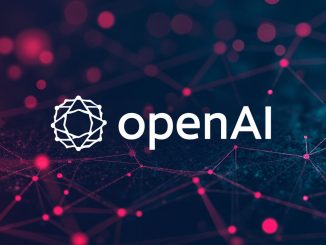
In a bold move that echoes across the tech landscape, OpenAI has unveiled its ChatGPT search service, positioning it as a formidable contender against Google’s long-standing search engine dominion. This launch marks a pivotal moment in the digital information era, where AI’s role in how we retrieve and interact with information is becoming increasingly central.
The introduction of ChatGPT search is not just another feature update; it’s a strategic play to redefine search. Utilizing the advanced capabilities of the GPT-4o model, this service not only aggregates general web information but also integrates real-time data on weather, sports, stocks, news, and maps, offering a comprehensive search experience. What sets OpenAI’s approach apart is its conversational search paradigm, allowing users to engage in a back-and-forth dialogue, potentially reducing the need for multiple searches on the same topic.
The rollout strategy for ChatGPT search is tiered. Initially, it’s accessible to paying subscribers like ChatGPT Plus and Team users, as well as those on the SearchGPT waitlist. This exclusivity might be a clever move to manage load on the new system while building a premium user base. Over the coming weeks and months, the service will gradually become available to enterprise, educational, and finally, free users, ensuring scalability and stability.
The immediate market reaction was palpable, with Alphabet Inc. (GOOG), Google’s parent company, witnessing a 2% dip in its stock price. While this might be indicative of investor jitters over potential competition, it’s also a reflection of broader market sentiments towards tech spending and AI’s commercial viability. However, Google’s stronghold on the search market, with a 90% market share, suggests that while OpenAI’s entry is significant, the landscape isn’t shifting overnight.
Google, aware of the brewing storm, has not been complacent. Its AI Overviews, which add generative AI answers to traditional search results, show that Google is also pushing the boundaries of search technology. Yet, the competition from OpenAI, backed by Microsoft (MSFT), introduces a dynamic where the quality of AI responses could very well determine user loyalty.
The broader implications of this development extend beyond market shares. OpenAI’s search service might challenge Google’s advertising stronghold, which is a critical revenue stream. If users find ChatGPT’s answers more satisfactory, this could lead to less reliance on Google’s ad-supported model. Furthermore, with ongoing antitrust scrutiny against Google, OpenAI’s service adds another layer of complexity to the legal and competitive environment Google navigates.
For consumers, the promise of ChatGPT search lies in its potential to deliver more personalized, context-aware, and perhaps more truthful information, addressing issues like the “hallucination” problem seen in some AI interactions where incorrect information is provided with authority. OpenAI’s commitment to factuality, as seen in their recent focus on benchmarks like SimpleQA, could foster trust in AI-driven search.
h/t YF





Leave a Reply